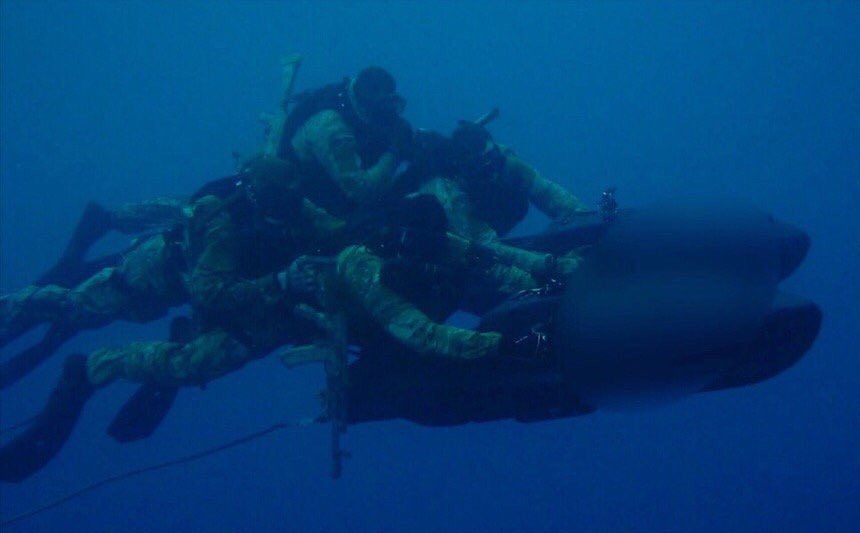
This week, Russia held large-scale military exercises in the Mediterranean, more than 25 warships and around 30 planes took part in the drills.
Russian television has released footage of a recently conducted exercise in the East Mediterranean showing how Russian combat swimmers have practiced beach landing from a Kilo-class diesel-electric submarine.
During the military exercises was spotted the German-made extreme high-performance diving scooter for professional purposes, that was used by the combat swimmers of the Russia Special Forces.
Joseph Dempsey, a defense and military analysis research associate at the International Institute for Strategic Studies (IISS), wrote on his Twitter account that the Russia Special Forces brought their Germany origin Black Shadow DPVs (Diver Propulsion Vehicles) along to the military exercise in the East Mediterranean.
Looks like #Russia Special Forces brought their #Germany origin BlackShadow DPVs (Diver Propulsion Vehicles) along to the military exercise in East Mediterranean pic.twitter.com/astNmHIJ8k
— Joseph Dempsey (@JosephHDempsey) 10 September 2018
The German-made Rotinor Black Shadow (RBS) are widely used within the Special Forces community and represent a major player in the market with over 20 customers.
Underwater Black Shadow vehicle is supplied for the units of special forces in two versions: for two and four combat swimmers. The speed of movement under water is ten kilometers per hour, the electric motor can operate in an autonomous mode for three hours.
The powerful motor performance of 8 HP is controlled by 10 power levels. Hereby the operator can alternate individually between slow or high speed manoeuvres through the water. The RBS can be steered down to a depth of 60 m, thus making it ideally suitable for all kinds of underwater missions and special operations. The hydrodynamic design of the RBS lends the diving scooter a high degree of agility in the water. All steering and diving manoeuvres are carried out simply by shifting the weight of the body. The specially developed harness system enables the operator to easily control the enormous thrust of over 70 kg.
In 2016, the Russian news agency RIA Novosti reported that the first contract in the interest of the Russian armed forces was signed in 2013.